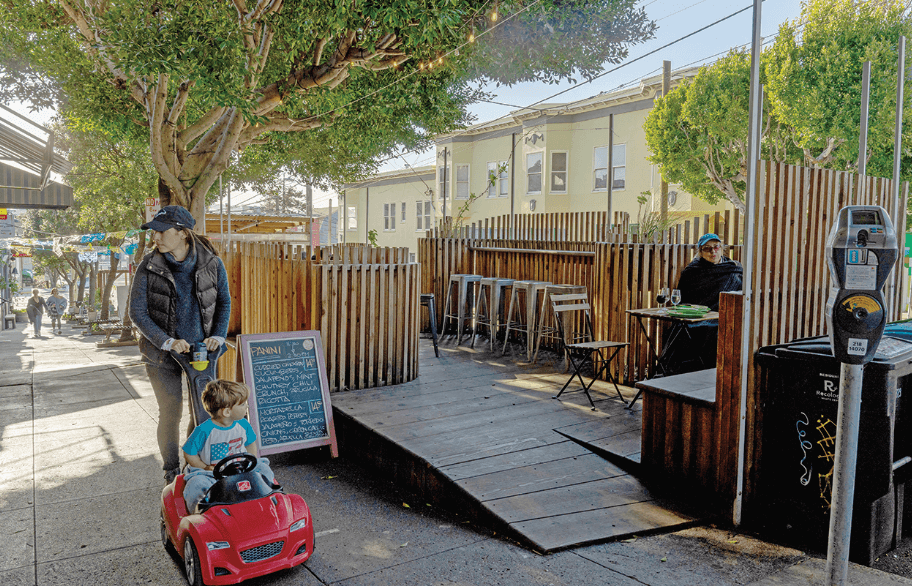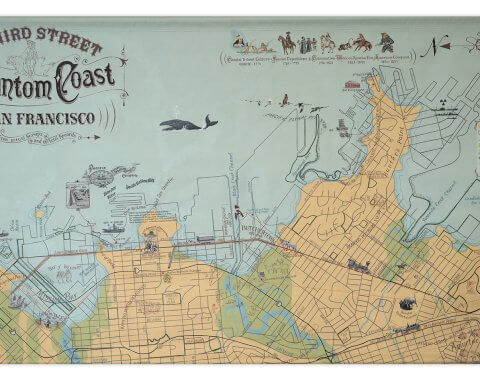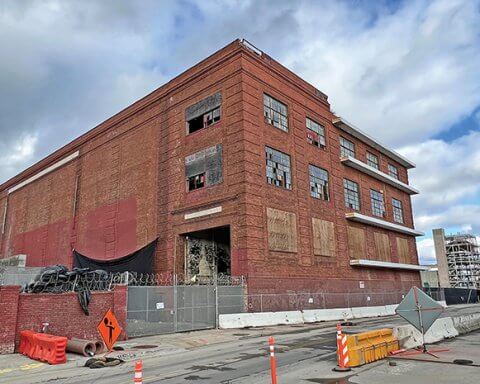Amidst the pandemic numerous curbside parklets appeared along 18th Street, providing restaurants with a vital lifeline and customers the ability to dine al fresco. The emergency Shared Spaces program enabled eateries to occupy sidewalks and parking spaces, allowing them to remain open.
Last April, Shared Spaces became a permanent municipal program. Under new guidelines, some Potrero Hill parklets require major rebuilds, while others need only modest modifications to meet Fire Code or American Disabilities Act (ADA) standards.
The City has three Shared Spaces classifications: “public parklet,” “commercial parklet,” and “moveable commercial parklet.” A “public parklet” provides space for community use from sunrise until 10 p.m., similar to structures erected before the pandemic. “Commercial” and “moveable commercial” parklets are used by a company during business hours, with seating available to the public during non-business hours.
Establishments with curbside parklets constructed during the pandemic face charges which were previously waived. One parking space occupied by a parklet is assessed a one-time $3,000 fee, with each additional parking space $1,500, along with an annual $2,000 license payment. Businesses with less than $2 million in annual revenues are eligible for discounts.
Alimentari Aurora
The parklet outside Alimentari Aurora and Ruby Wine, 18th Street between Missouri and Connecticut streets will remain. It’s the only public parklet on the Hill.
“We definitely plan to keep the parklet,” Dario Barbone, Alimentari Aurora owner, said. “We built the public parklet to give people a place to sit, relax and enjoy. During the pandemic, a lot of extension of tables and chairs allowed restaurants to create more seating for the places, but those spaces are not usable. You sit down and a menu shows up,” Barbone pointed out. “Here, you can read your magazine, book, or work if you want.”
Barbone mentioned that the parklet will be “gently” modified to meet regulatory requirements.
“The structure is going to stay the same; open space with the little cubbies. It’s here for the long run,” he concluded.

Blooms Saloon
Blooms Saloon intends to replace the parklet on 18th Street.
“We’re completely rebuilding it,” Barbi Tice, Blooms Saloon co-owner, said. “We’re waiting for (the City) to tell us exactly what they want us to do and not want to do. This was never built to be permanent, so it’s not to the standard that we want it to be.”
Tice added that the bar welcomes people to the parklet.
“We get the sunny side of the street. People from Farley’s come over sometimes because their side is cold. So, we’re together to keep it for the neighborhood.”
Papito
Papito’s commercial parklet, built as part of the pandemic-era Shared Spaces program, faces complications under the new regulations, though the restaurant hopes to continue using it.

“The City said that we have to take it out, probably in a couple of months. So, we don’t know yet about that,” Luis Barrera Papito manager said. “We want to keep it open outside forever.”
Chez Maman
The parklet and seating outside Chez Maman will require modifications to meet the new regulations, but the restaurant plans to keep it open.
“We’re going to redesign it because we need to get it up to code. We’re just waiting for the approval process,” Brandon Petry, a restaurant manager, said. “We’re going to (make) it a little bit smaller, and a little bit more ADA friendly. It gives people an opportunity to enjoy outside. Previously we only have six seats outside. We’ve been able to expand, and people can take in the great view.”
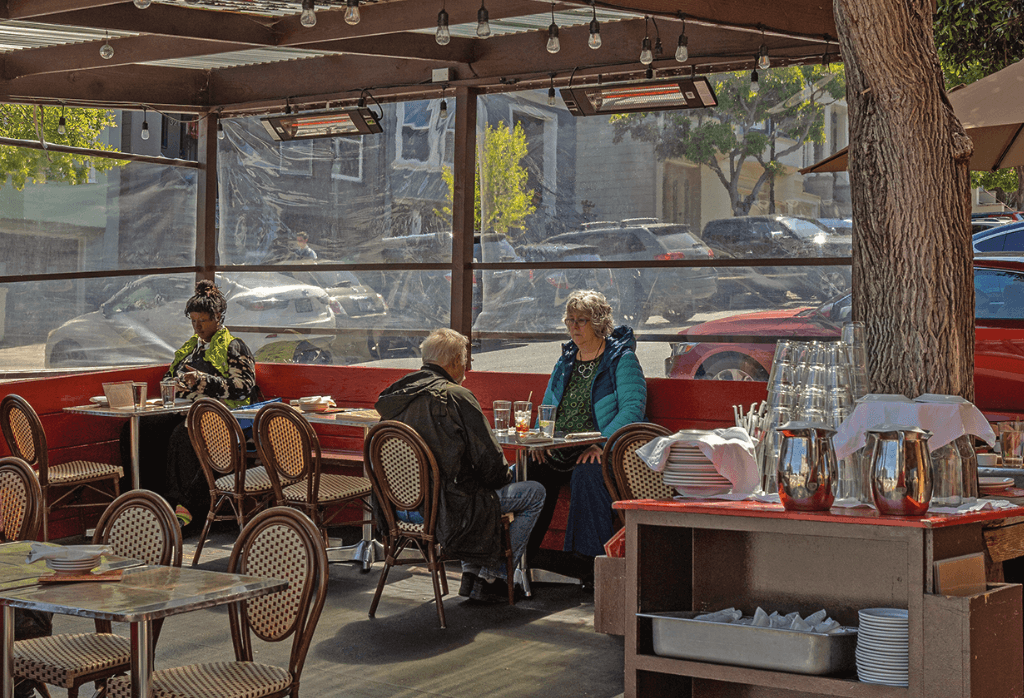
Mochica
Mochica plans to continue operating the restaurant’s parklet on the corner of 18th and Connecticut streets.
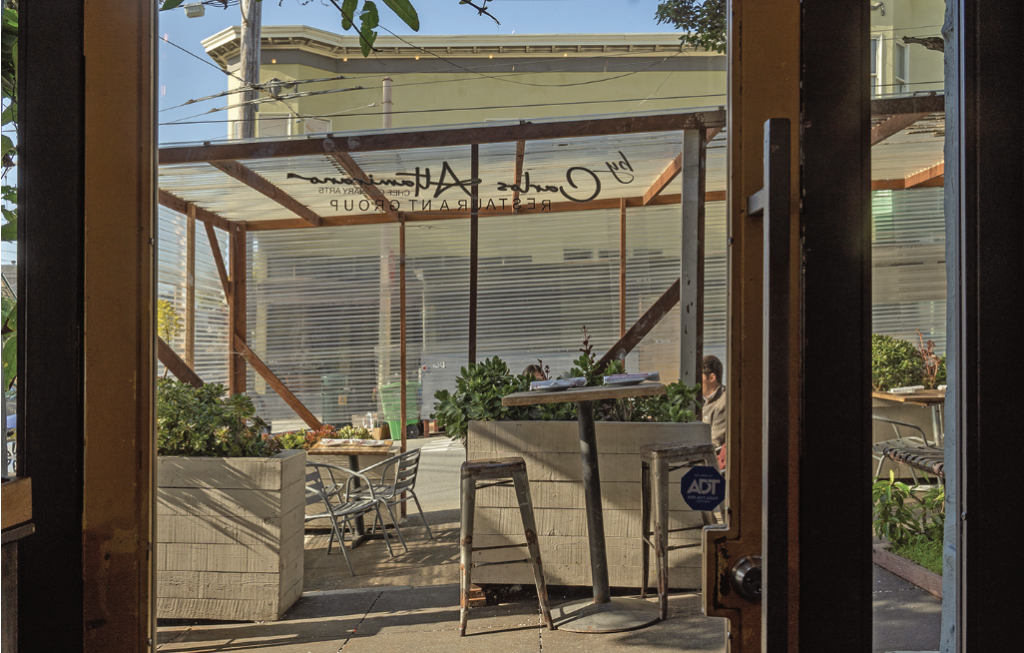
“I believe we’re going to update some parts of it,” Kathleen Ramirez, a restaurant hostess, said.
Similar to other 18th Street establishments, the parklet has allowed the eatery to provide diners with more seating options.
“It brings in more customers, especially during the sunny days. People just want to spend more time outside,” Ramirez said.
Pictured, top: A woman and child pass by the parklet outside Alimentari Aurora. Photo: Odin Thien-An Marin

